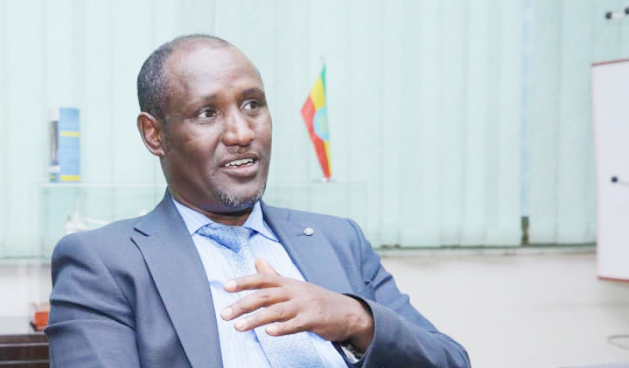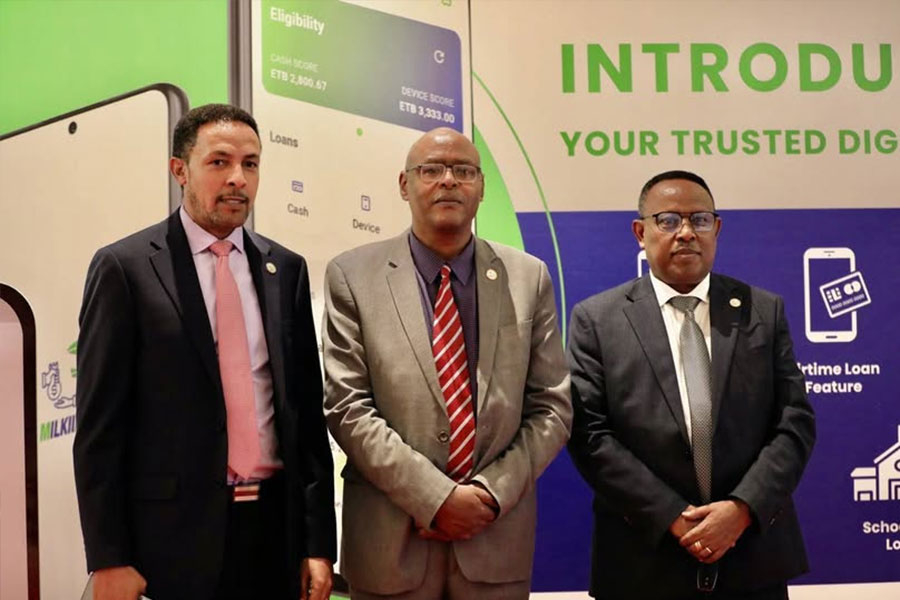
Sunday with Eden | Nov 16,2019
A new application that looks to digitise equb, the popular traditional form of saving, is set to launch a beta version at the end of this month. Developed by three individuals, the application will also introduce electronic payment methods to saving practices.
Dubbed eQub, it was originated by three innovators, a programmer and two entrepreneurs working under eQub Financial Technologies Plc, a company that has filed for a trademark of the application. The company aims to get over 30,000 users from the pool of already existing traditional savers within 90 days following the launch.
Equb is a traditional means of savings where people make periodical contributions, typically monthly, to a group pot. The pot, the sum of the contributions, is distributed on a rotational basis through a lottery each month until every member of the group receives a payout.
To sign up for the application, users will be required to provide details such as name and address along with a valid government identification card. In the application, users, whom the application refers to as eQubbers, will participate in a lottery to determine who will get the lump sum of savings first. The order of rotation will be settled using the application's "Wheel-of-eQub" feature.
In eQub, the administrator, the collector of money in the traditional sense, approves payments that have been submitted for the perusal of eQubbers online.
The traditional form of savings, though existing outside the formal financial institutions, is widely practised by community members across the country and operates based on mutual trust within the group. In addition to its social value, equbhas been used as a savings mechanism for the unbanked segments of society. It also eliminates the need for collateral, which may not be easily accessible for many.
The app is set up and managed online, and other eQubbers cannot only follow up on payments but also interact and send notifications based on existing templates. A dashboard on the application will show who has paid, whether anyone has been late in submitting their payment, as well as providing the option to browse and explore other eQubs in the user's vicinity. While browsing, the amount of the eQub and a link for joining requests will be shown, but other details will remain confidential.
Users of the application will benefit from timely reminders to make their payments and from a feature that allows them to accrue points, and later rewards based on the points, for timely payments. Advertisements that target products and services that eQubbers save up for will also be a source of income for the application.
Partners of the application will determine the different benefits for users, according to Alexander Hizikias, one of the founders.
"We've also made headway with banks in order to link the services with the application," he said. "We'll be using feedback from the beta stage launch in order to incorporate it in the final version."
Developing the application, however, is not the hardest part when it comes to innovations like this, according to Markos Lemma, founder of Iceaddis, an innovation hub in the city. He asserts that the most difficult part is garnering engagement.
"There have been a couple of similar innovations, but you don't see a significant impact that's been made," he said. "Testing with your client base is very important."
The value proposition, what the application aims to solve, is also very important, added Markos.
Considering that this traditional means of saving is mostly used by the unbanked segment of society, the tech savviness of the client base should be taken into consideration, according to him.
Technology adaptation cycles, the process of acceptance of a new product in a society, is also noteworthy. "Is the market eager to try a product even at trial stages or is it mostly composed of what the tech industry refers to as laggers, people with a strong aversion to change?" he asks.
The Ethiopian Intellectual Property Office under the Attorney General, through which patent, copyright and trademark laws are registered and deposited, is the body in charge of the protection of such innovations.
Though trademarks are more easily obtained based on branding and name, patent rights are difficult to ascertain as they require the developed software to be very distinct in their nature, according to Endale Daboch, trademark search and examination team leader at the Office.
Patent rights are more stringent and necessitate nobility, non-apparentness and industrial applicability as basic differentiating elements. The first element, nobility, means that there needs to be a significant difference between the last similar invention and what is presented, while non-apparentness dictates that the invention should not be obvious. Industrial applicability means that the created product must be replicable.
The Office is faring comparatively well in raising awareness with regard to intellectual property rights than in previous years, according to Endale. Training that targets high business activity sectors and participants along with commercials is part of the work.
However, a lot of labour remains to be done. Many do not understand that intellectual property is valuable and that it can and does translate to a means of generating income, he added.
"We see people come for registration when there is a dispute that occurs and not as an initial part of the process," he said. "There's also a tendency to replicate what is available in other countries instead of coming up with original ideas."
In some cases, people even confuse the phrase "intellectual property" with mental health, he added.
This in addition to existing legal gaps have been bottlenecks regarding intellectual property rights.
PUBLISHED ON
Dec 12,2020 [ VOL
21 , NO
1076]

Sunday with Eden | Nov 16,2019

Fortune News | Jun 22,2019

Radar | Dec 29,2018

My Opinion | Sep 10,2023

Life Matters | Feb 04,2023

Radar | Jun 01,2025

View From Arada | May 03,2025

Fortune News | Mar 05,2022

Fortune News | Jul 29,2023

Sunday with Eden | Jul 01,2023

Dec 22 , 2024 . By TIZITA SHEWAFERAW
Charged with transforming colossal state-owned enterprises into modern and competitiv...

Aug 18 , 2024 . By AKSAH ITALO
Although predictable Yonas Zerihun's job in the ride-hailing service is not immune to...

Jul 28 , 2024 . By TIZITA SHEWAFERAW
Unhabitual, perhaps too many, Samuel Gebreyohannes, 38, used to occasionally enjoy a couple of beers at breakfast. However, he recently swit...

Jul 13 , 2024 . By AKSAH ITALO
Investors who rely on tractors, trucks, and field vehicles for commuting, transporting commodities, and f...

Nov 1 , 2025
The National Bank of Ethiopia (NBE) issued a statement two weeks ago that appeared to...

Oct 25 , 2025
The regulatory machinery is on overdrive. In only two years, no fewer than 35 new pro...

Oct 18 , 2025
The political establishment, notably the ruling party and its top brass, has become p...

Oct 11 , 2025
Ladislas Farago, a roving Associated Press (AP) correspondent, arrived in Ethiopia in...